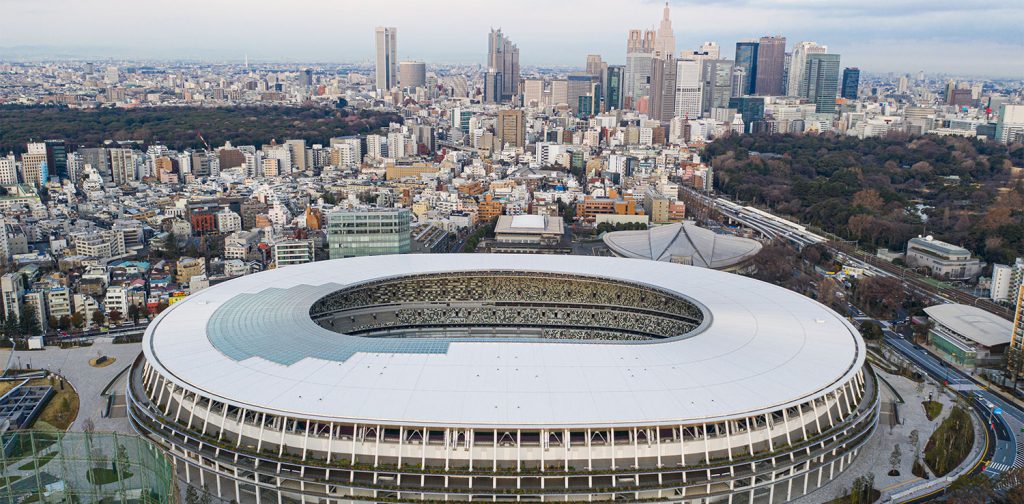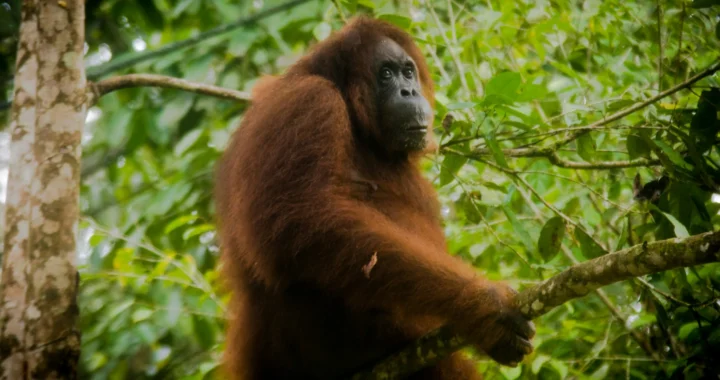The Tokyo 2020 Olympics Bubble (2): Sustainability Criticisms and COVID-19

New National Stadium Tokyo | Photo by Arne Müseler
The Tokyo 2020 Olympics that is currently happening has been claimed to be the most sustainable one so far. Yet, it appears to happen inside the safe and sustainable bubble.
Tokyo had a sustainability concept in mind when designing this revered sporting event. These designs result in some good and innovative solution models to global sustainability challenges, as mentioned in The Tokyo 2020 Olympics: Sustainability in Design.
Although the ban of domestic and foreign spectators will create lower carbon emissions than usual, flying in thousands of athletes and coaches worldwide still creates massive carbon emissions.
Masako Konishi, a member of the Tokyo 2020 Olympics sustainability committee and the climate and energy project leader at World Wildlife Fund Japan, has told NPR that the Olympic organizers have collected 150% of the carbon credits needed to offset the Games’ greenhouse gas emissions, making the Olympics carbon negative.
However, criticisms regarding the Tokyo 2020 Olympics’ claims on sustainability have risen. There have been calls of “greenwashing”, saying that the sustainability efforts done for Tokyo 2020 are superficial. A peer-reviewed study conducted by the University of Lausanne stated that the Tokyo 2020 Olympics is the third-least sustainable Olympics since 1992.
The study gave recommendations on how the Olympics should proceed in terms of sustainability. These recommendations require significant changes from the Olympic Committee, such as greatly reducing the size of the event, rotating the Olympics to be hosted in the same cities, and enforcing independent sustainability standards.
The Tokyo 2020 Olympics bubble is a village for athletes, coaches, and other games-related people. Inside the bubble, 80% of its occupants have been vaccinated against COVID-19, testing is frequent and compulsory, movement is limited, and health protocol is strictly enforced. Aljazeera reported that Tokyo Olympics organizers had revoked the accreditation of games-related people for leaving the Olympic Village for sightseeing.
Outside of the Tokyo 2020 Olympics bubble, there were 4,058 newly reported COVID-19 cases in the city on July 31, 2021. It was their highest number despite the recent extension of states of emergency. Without a strict lockdown or curfew, the Japanese government is relying on the people’s cooperation.
However, the streets of Tokyo have started seeing more life than during the first state of emergency last year. Many Tokyo citizens claim that besides lockdown fatigue, seeing the government’s enthusiasm for the Olympics has made people feel it is acceptable to go out like before.
The Tokyo 2020 Olympics is nowhere near perfect or as impactful as the world hopes. Still, it is a good start towards pursuing sustainability in the Olympics and other massive global events. Tokyo 2020 offers a starting point to review and improve upon to take responsibility while also celebrating what it means to be citizens of the Earth.
-End-
Editor: Marlis Afridah
To read the Indonesian translation of this article, click here.

Subscribe to Green Network Asia
Strengthen your personal and professional development with cross-sectoral insights on sustainability-related issues and sustainable development across the Asia Pacific and beyond.

Nazalea Kusuma
Naz is the Manager for International Digital Publications at Green Network Asia. She once studied Urban and Regional Planning and has lived in multiple cities across Southeast Asia. This personal experience has exposed her to diverse peoples & cultures and enriched her perspectives. Naz is an experienced and passionate writer, editor, translator, and creative designer with a decade worth of portfolio.


 Looking into Biochar as a Bioremediation Agent
Looking into Biochar as a Bioremediation Agent  Australian Climate Visa for Citizens of Tuvalu: Showcasing cross-border partnership in light of the climate crisis
Australian Climate Visa for Citizens of Tuvalu: Showcasing cross-border partnership in light of the climate crisis  Nickel Mining in Raja Ampat and the Widespread Cost of Natural Resource Exploitation
Nickel Mining in Raja Ampat and the Widespread Cost of Natural Resource Exploitation  Lumbung Sosial: Challenges and Opportunities of Indonesia’s Social Barn Program
Lumbung Sosial: Challenges and Opportunities of Indonesia’s Social Barn Program  A Worrying State of Insect Decline
A Worrying State of Insect Decline  GEF Approves Funding for Biodiversity Conservation Projects in Indonesia
GEF Approves Funding for Biodiversity Conservation Projects in Indonesia